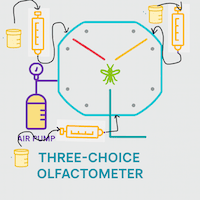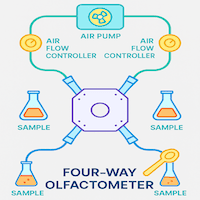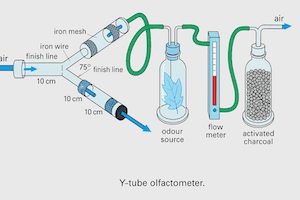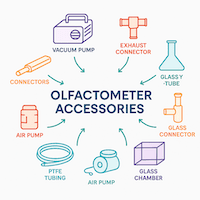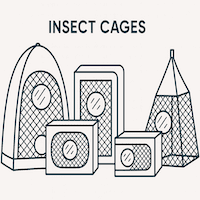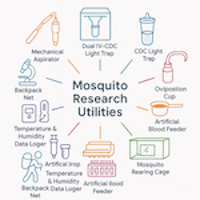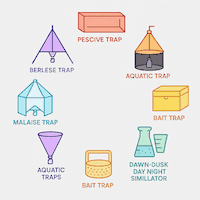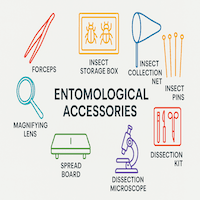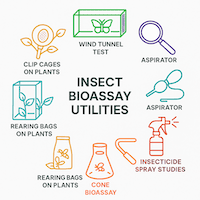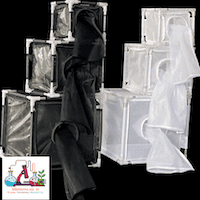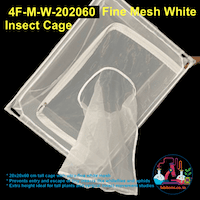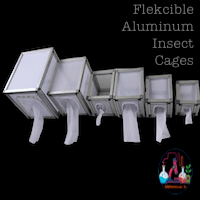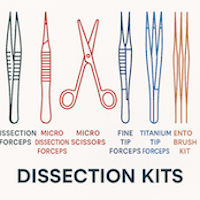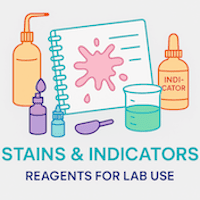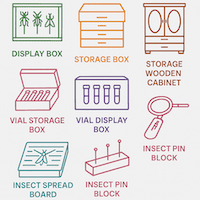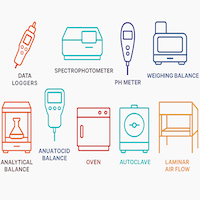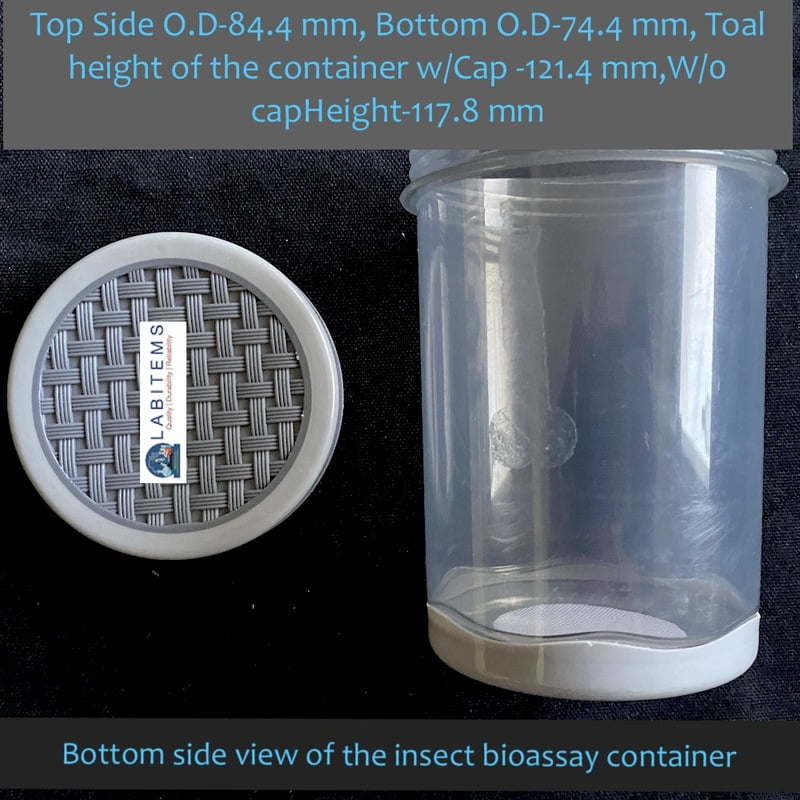
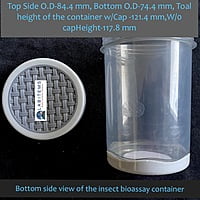


Insect Bioassay and sample transport container 200ml
Customize
Product Details
entoWIZ Insect rearing containers play a vital role in conducting bioassay studies, which involve evaluating the effects of various factors on insects. These containers provide controlled environments for rearing insects, allowing researchers to study their behavior, development, and responses to different stimuli. Below are the few important uses and application areas of insect rearing containers in bioassay studies.
Rearing and breeding: LABITEMS Insect rearing containers are designed to provide optimal conditions for the growth, reproduction, and development of insects. They offer a controlled environment with appropriate temperature, humidity, lighting, and ventilation, ensuring the survival and healthy development of the insect populations under study.
Standardization: In bioassay studies, it is crucial to maintain consistent and reproducible conditions to obtain reliable results. Rearing containers enable researchers to standardize the environmental factors affecting the insects, minimizing variations that could influence the outcomes. This consistency allows for accurate comparisons between different treatments or experimental groups.
Toxicology and pesticide efficacy: Bioassays are commonly employed to evaluate the toxicity of pesticides or other chemical compounds on insects. Insect rearing containers serve as the experimental units where the insects are exposed to specific concentrations of the test substances. By monitoring the mortality, growth rates, or behavioral changes in the insects, researchers can determine the effectiveness and potential harmful effects of the tested compounds.
Behavior studies: Insect rearing containers provide controlled settings for studying various aspects of insect behavior. For instance, researchers can observe feeding preferences, mating behaviors, oviposition patterns, or responses to environmental cues. By manipulating the conditions within the containers, such as the availability of food sources or light cycles, scientists can investigate how these factors influence insect behavior.
Disease transmission and vector studies: Insect rearing containers are essential for studying the transmission of diseases by insects, such as mosquitoes and ticks. These containers can simulate natural conditions and enable researchers to rear infected insects, track their behavior, and observe the spread of pathogens within the insect population. Such studies contribute to our understanding of disease dynamics and aid in the development of effective control strategies.
Genetic and physiological research: Insect rearing containers allow for controlled experiments on the genetic and physiological aspects of insect biology. Researchers can manipulate the genetic makeup of the insects or expose them to specific environmental conditions to study the expression of certain traits or physiological responses. This knowledge aids in understanding insect development, adaptation, and evolution. Mass production: Insect rearing containers are also used for mass-producing beneficial insects, such as predatory insects or parasitoids, for biological control purposes. These containers provide a space where large numbers of insects can be reared efficiently, ensuring a steady supply of biological control agents to manage pest populations in agriculture or forestry.
In conclusion, insect rearing containers are indispensable tools for conducting bioassay studies. They offer controlled environments for rearing and manipulating insect populations, enabling researchers to investigate various aspects of insect biology, behavior, and responses to different treatments. The use of these containers enhances the precision, reproducibility, and reliability of bioassay experiments, ultimately contributing to advancements in pest management, disease control, and our understanding of insect ecology.
For other insect containers or insect breeding dishes or bioassay containers please visit here
nsect collection containers Africa, insect storage containers for research, entomology containers African universities, insect specimen containers for labs Kenya, insect sample containers for research Nigeria, insect collection tubes South Africa, insect holding containers for university labs Uganda, insect preservation containers for research Tanzania, entomology field containers Ghana, insect storage boxes for scientific studies Ethiopia, insect sample jars for research Malawi, insect specimen storage for entomologists Zimbabwe, insect collection kits for university labs Cameroon, insect research containers for vector studies Rwanda, insect containment solutions for African universities, insect specimen containers for mosquito research, entomology insect containers for wildlife studies Africa, insect sample storage products for research centers, insect collecting containers for academic research Africa.



